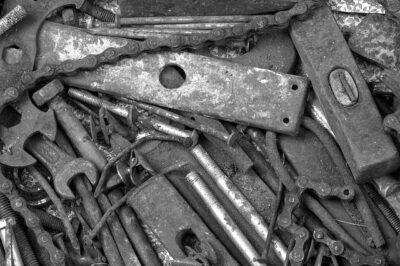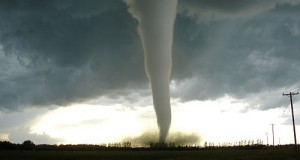It’s easy to think that the modern preparedness movement is a unique phenomenon. Most of us grew up during a time when the economy was growing, the government seemed to be more responsive to the will of the people, and everyone was busy chasing the American Dream.
But if we go back farther, to the time of our grandparents or great-grandparents, we find that what some call “prepping,” they called life. They didn’t have a movement, they had a lifestyle. And that lifestyle assumed that bad things would happen, so they’d better be ready.
Emergency Seed Bank Provides THOUSANDS Of Pounds Of Food
So it is useful to understand what others did before. After all, they had generations of experience backing up their actions, not just the voices of a few survival instructors and writers. Many of the things they did came out of years of experience, as generation after generation faced calamity and learned from it. So, when we learn from our grandparents, we learn from that accumulated knowledge.
1. Heating fuel
Anyone who heated with wood learned to start stockpiling it early. Felling, bucking, hauling and splitting trees for firewood is a long, difficult process. They couldn’t get by with having just a little on hand, either; they needed a lot. When wood is your only way to heat, you want to make sure you’ve got enough.
Working on the firewood pile was something that was done whenever there was time. Once the spring crops were in and there was a break in the farm’s schedule, they’d start cutting. That would continue, as their work schedule allowed. The earlier the pile could be built, the better, as the wood needed time to season and dry before it could be used.
This meant that they always had an ample supply of firewood available for their cooking and heating. It was rare to find a home without a stack of firewood behind it, and that stack was often piled up to the eaves of the home.
2. Candles
 When your only light is coming from the fireplace or from candles, you don’t want to run out. Past generations largely relied on sunlight and went to bed earlier. And people slept more in the cold winter, simply because of the shorter days and lack of light. But there was still the need for additional light, and candles were important.
When your only light is coming from the fireplace or from candles, you don’t want to run out. Past generations largely relied on sunlight and went to bed earlier. And people slept more in the cold winter, simply because of the shorter days and lack of light. But there was still the need for additional light, and candles were important.
Candle making, like cutting wood for the fire, was something that was done whenever there was an opportunity. You never knew how many candles you needed. So in a sense, there were never enough. When you had the necessary materials, you’d look for an available opportunity to set aside time to build up your candle stock.
Some people would actually set aside a candle-making area, keeping their wax melted so that they could dip them every couple of hours, throughout the day. Dipped candles take time and by interspersing that task with others, they would get more out of their day.
3. Tools
This may not seem much like a stockpiling item, but it is. In our modern society, we are used to having other people do things for us. We call a plumber when we need one and hire a carpenter when the screen door is broken. And few of us know how to change the oil in our cars, instead asking a mechanic to do it for us.
In the generation of our grandparents, people did more for themselves. While there were plumbers and mechanics around, they were hired by the wealthy, not by the average person. They would try and do it themselves, unless the job was more than they could handle. Hence the joke among plumbers about charging a higher hourly rate for jobs where the person tried it themselves first.
Get The Essential Survival Secrets Of The Most Savvy Survivalists In The World!
It was normal for a boy to grow up learning a little bit of plumbing, a little bit of carpentry and a little bit of auto mechanics from his dad. By the time he reached adulthood, the average American boy had his own tool kit built, ready to tackle those jobs on his own. Then, when disaster struck, he was ready.
4. Scraps of stuff
I clearly remember my grandma and other women of her generation being hoarders. They would save all sorts of things, from scraps of fabric to candle stubs. It wasn’t so much that they wanted to have those things, but that they could still see value in them. That old shirt could be cut up and the good parts used in making a quilt, while the rest could be used for a rag. The candle stubs could be melted down and used to help make new candles.
Throwing containers away was almost unheard of. Few people bothered buying plastic storage containers for their kitchens. Instead, they would use a container that something else came in. Everything from barrels to burlap sacks had a use, making the containers almost as valuable as what had come inside them.
This also greatly eliminated the pollution caused by throwing things away. When old things can be turned into useful things, there’s no reason to throw them away.
5. Money
 Maybe you’re not old enough to say this, but my grandparents lived through the Great Depression. They were children then, but nevertheless it impacted them greatly. They knew what it was to be without and they knew how hard it was to live without money. So they were careful with its use, never wasting.
Maybe you’re not old enough to say this, but my grandparents lived through the Great Depression. They were children then, but nevertheless it impacted them greatly. They knew what it was to be without and they knew how hard it was to live without money. So they were careful with its use, never wasting.
The idea of spending seven dollars for a cup of coffee would probably give most people of that era a heart attack. Even the dollar and a half or two dollars they charge in a restaurant for a normal cup of coffee is a lot. They’d order water and enjoy that, having their coffee when they got back home.
While this attitude of frugalness may seem a bit strange to people today, there was good reason for it. There also was great benefit from it. Those people always had money. Maybe they didn’t make a lot and maybe they didn’t live like kings, but they always had money. When a need came up, they had the money in the bank to pay for it. I’ve seen those people buy cars and pay cash for them.
6. Food
The idea of stockpiling food is probably older than civilization itself. As long as mankind has been able, we have stockpiled food to get through the winter. In many parts of the world, one’s very survival depended upon having enough food stockpiled to make it through the cold and snow of the winter months, until game animals were out in abundance again.
All of our food preservation techniques were developed as part of this annual challenge. Food that couldn’t be kept was just about as bad as food that had never been found. While preserved foods may not be as tasty as fresh foods, they will keep people alive.
As far back as ancient Egypt we find evidence of people preserving food. The tombs of the pharaohs always contained food for them to consume in the afterlife. The Bible records this, showing how Joseph was promoted to Prime Minister of Egypt for interpreting the Pharaoh’s dream and his wisdom in knowing what to do to prepare for the oncoming disaster.
At a minimum, canning food was common in our grandparents’ day. They would can produce from their garden or produce that they had purchased at the store. Many also would smoke meats as well as making their own sausage. These were all means of preparing foods, so that they would have enough to make it through the winter or whatever else came.
7. Goodwill
Finally, the most important thing I remember my grandparent’s generation stockpiling was goodwill. What? That doesn’t sound like something to stockpile to you? Well it is. You see, when you stockpile goodwill, it’s like money in the bank. Then, when you befall a calamity, people run to help.
As a society, we have become more self-centered in general. We don’t bother ourselves with other people’s problems. We leave them to take care of themselves. Oh, occasionally we hear a story of a community gathering around someone who is hurting, but those stories are too rare. In my grandparent’s generation, that was common. When one person was hurting, everyone who could lent a hand.
Lending a hand like that is how you stockpile goodwill. Then, when you have a need, others remember what you’ve done for them. They are more likely to help you out, simply because you have done so for them.
What would you add to the list? Share your thoughts in the section below:
Learn Dozens Of Organic Gardening Secrets And Tricks. Read More Here.
 Off The Grid News Better Ideas For Off The Grid Living
Off The Grid News Better Ideas For Off The Grid Living




